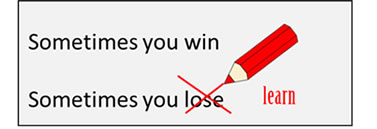| |
| |
antropogogia |
| |
Our reason for being: to develop the full potential of the human being |
|
|---|
| |
what we think
Learning, Apprehending, Entrepreneuring. |
| |
|
| The only constant is change, as Heraclitus of Ephesus said about 500aC. Now, however, changes happen at an increasing rate. The knowledge and skills that were sufficient until yesterday, they are not today, and will be much less tomorrow. You need to continuously learn and apprehend. |
- Learning is to educate oneself, to acquire knowledge and/or skill expertise; to gain a better understanding of something, by intuition, by sensing, by experience and/or by the example of someone else.
|
- Apprehending is to grasp, to assimilate mentally, to understand in depth.
|
However, just Learn and Apprehend, does not change the result. More than Knowledge, Skills, Attitude, you need to take initiative and keep on track until accomplish what you started. |
- Entrepreneuring is to decide to implement, to act, to accomplish.
|
Finally, it is worth checking. |
- Has anything gone wrong? It's time to restart...
|
| |
Thomas Edison was 31 years old in 1878 when he proposed to himself the challenge of getting light from electricity using metal filaments. Over a thousand attempts were needed to find the perfect filament. In 1879, he got an electric light bulb shining for 48 hours, and achieved lighting up an entire street for the year end celebrations. |
| |
|
| |
 |
|
| |
Continuous improvement requires a strong discipline. The Kaizen philosophy seeks simplicity, do more with less. The Shitsuke (sense of self-discipline) of the 5S program focuses on the revision of the standards set in other 4S. In Deming's PDCA cycle, after Planning and Doing, one should Check and Act (correct and improve). The PMI methodology reinforces the importance of "lessons learned" meetings that promote continuous improvement. |
|
| |
Remember to celebrate success, enjoy the benefits and recognize the contribution of others. |
| |
|
|
|
|
| |
|
|
| |
|
|
| |
|
|
|
|
|---|
| |
|
|
|
|